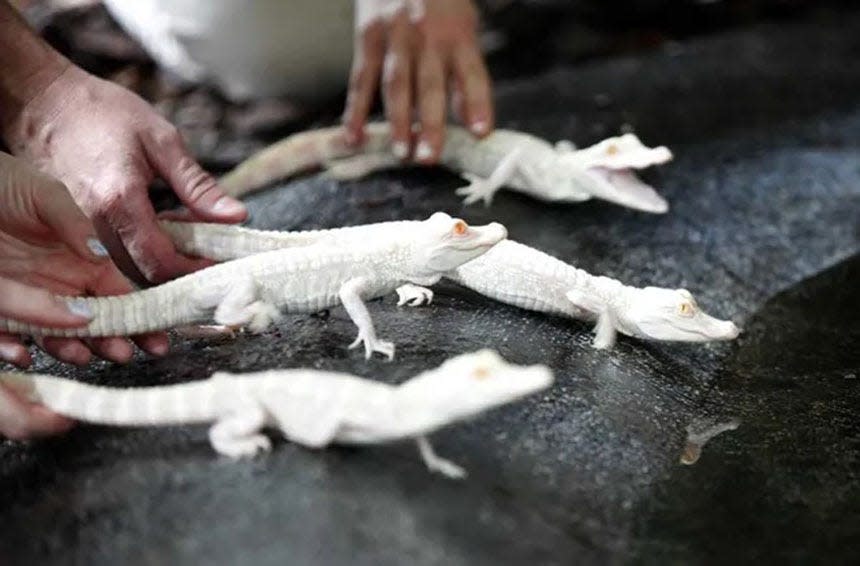THIS WEEK IN ST. JOHNS COUNTY HISTORY: Alligator Farm adds baby albino alligators in 2014
Editor's note: The St. Augustine Record published this story by Stuart Korfhage on Dec. 24, 2014.
It was a white Christmas at the St. Augustine Alligator Farm Zoological Park − a baby white alligator Christmas.
Thanks to Louisiana rancher Jerry Savoie, four albino alligators have been added to the Alligator Farm collection of animals.
According to John Brueggen, zoo director, they are the product of a rare genetic mutation that results in the absence of melanin, a skin pigment. In the wild, albino alligators will not survive even 24 hours because they lack the necessary coloration to achieve effective camouflage, making them both easy prey for predators and ineffective hunters.

At the Alligator Farm, the babies will live in a protected environment and will be sheltered from damaging sun rays since they have no natural defenses.
"There's a one in 100,000 chance that a female alligator will lay eggs containing albino babies," Brueggen said. "It's quite miraculous to have these four. We're calling them our 'Christmas Snowflakes.'"
Brueggen said Savoie doesn't usually sell the albino babies, but he was talked into it because the Alligator Farm wanted to have the babies during the holiday season.
"They (visitors) all love baby animals," said Gen Anderson, general curator at the Alligator Farm. "It really draws a crowd."
The babies had been kept out of the public eye until early Dec. 23, 2014, when the staff added them to the covered display near the entrance. It was already set up to handle the special needs of an albino animal. The Alligator Farm has had adult albinos on view since 1999.
Now the four little ones are enjoying their own small pond with heated water and heated rocks (so they can warm themselves without getting in the sun).
Like any other animal, the albino babies had to get accustomed to the attention before being shown to the public. Because they are so young, the staff has been extra careful with the new animals.
"They aren't used to people looking at them," Anderson said. "We have to make sure they aren't overly stressed.
"Getting them comfortable in time for the holiday rush is perfect."
This article originally appeared on St. Augustine Record: This week in history: Albino alligators were added to Alligator Farm in 2014

